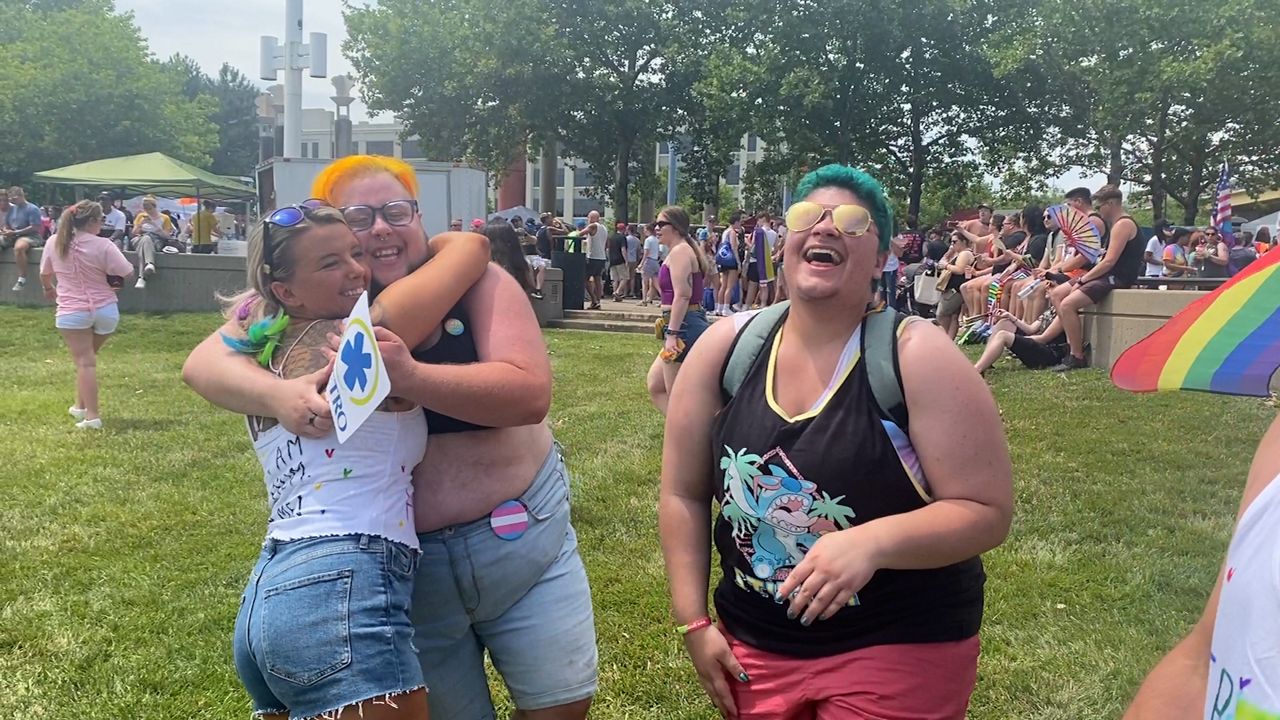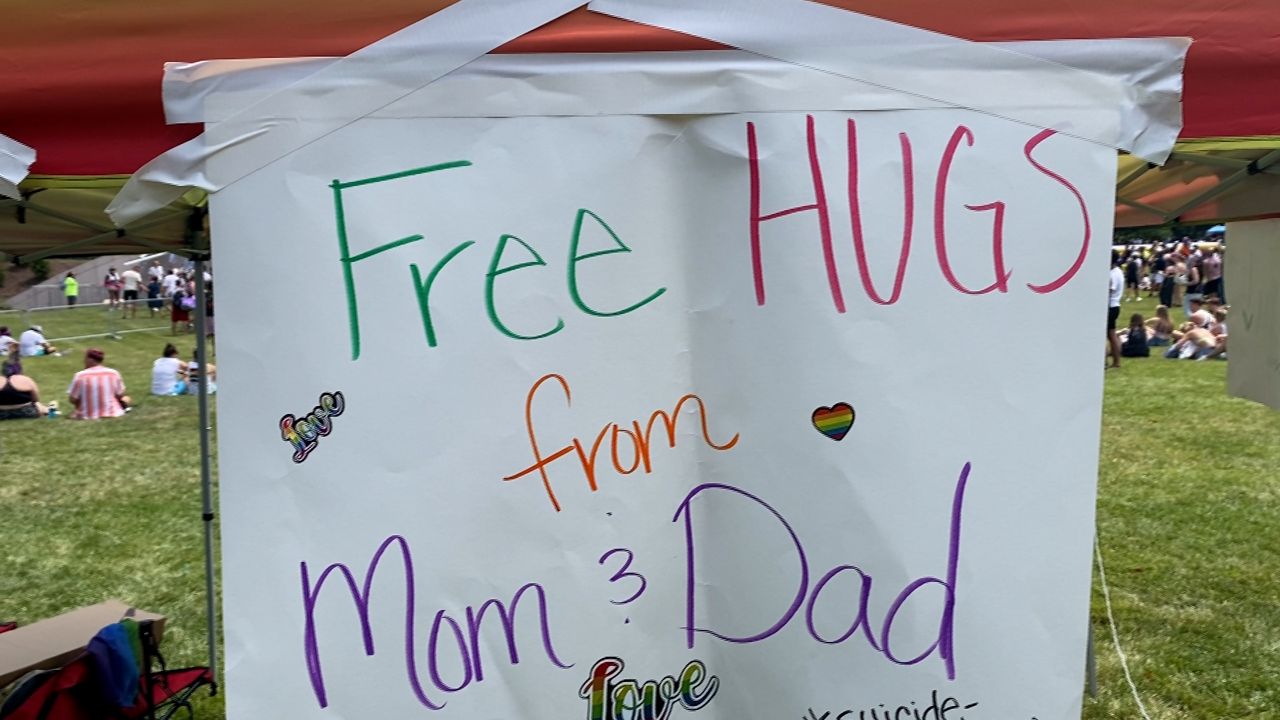CINCINNATI — For the first time in three years, rainbow flags, floats and costumes of every color paraded down the streets of downtown Cincinnati as Pride returned to the city.
Organizers estimate between the festival and the parade roughly 250,000 people came out, some hoping to celebrate their identity, while others were looking for a place of acceptance and empathy in the wake of what they call anti-LGBTQ legislation and governance.
Amanda Lockaby and her boyfriend made the trip from Indianapolis with her son, who she promised to take to his first pride. He came out to her just a few weeks ago.
“We wanted to show him what it was all about,” she said.

Lockaby, who identifies as bisexual herself, said she wanted to offer a safe space for her son to grow into his identity, so he’d know he’d always have a loving home during the entire process. She said it breaks her heart to know not every LGBTQ child can find the same support from their family.
“There are so many that do not have loving parents at home,” she said.
Besides offering her son all the hugs he could ask for, she also set up a sign outside her pop-up tent and wore a shirt reading “free mom hugs,” doling them out to strangers throughout the day, with her boyfriend supplying the “dad hugs” on request as well.
“We have given out probably 100 hugs,” she said.

Organizers like Carol Fischer, the volunteer chair of Cincinnati Pride, said gestures like that are at the heart of pride, anything that makes people feel welcome and accepted, no matter who they love or what gender they identify as.
“There’s people that want a safe space and there’s people that want to support people’s safe space,” she said.
A longtime pride volunteer, she said warmed her heart to see just how many people filled the riverfront for the first in-person festival since 2019. The pandemic meant 2020 and 2021 pride went virtual.
Meanwhile, Fischer acknowledges for many in the LGBTQ community, having a place like pride to organize and find acceptance can feel even more necessary in the current political climate.
“Especially in light of what’s going on with legislation, and the whole kind of vibe of the United States, it means even more to be back here today,” Fischer said.
She pointed to bills in the statehouse that she said targets trans youth or limits how teachers can talk about issues of gender and sexuality. Fischer believes legislation like that can foster feelings or shame and confusion in children, making them feel uncomfortable or unsafe to explore their identities.
She also believes hosting pride the day after the Supreme Court overturning Roe v. Wade may have been cathartic to many in attendance, especially considering one justice’s opinions implied the court may reconsider its decision on several cases relating to LGBTQ rights.

“This is a nonviolent way to make people realize that there are voices other than the voices of the Supreme Court,” she said.
Besides legal rights and acceptance, Lockaby said the importance of personal acceptance can’t be understood either, because some of her “free hugs” meant more than others.
“We were embraced by a girl and she held on just a little bit longer than the typical mom hug that we were offering and I felt it to the core,” she said. “And she said, ‘I haven’t seen my parents in over a year and they disowned me.’”
Lockaby said she understands a hug from a stranger can’t solve everything, but to her, providing one channel of acceptance can speak volumes to someone without the same systems many take for granted.
“Embrace everyone with open arms because you never know what the person next to you (is) going through,” she said.



